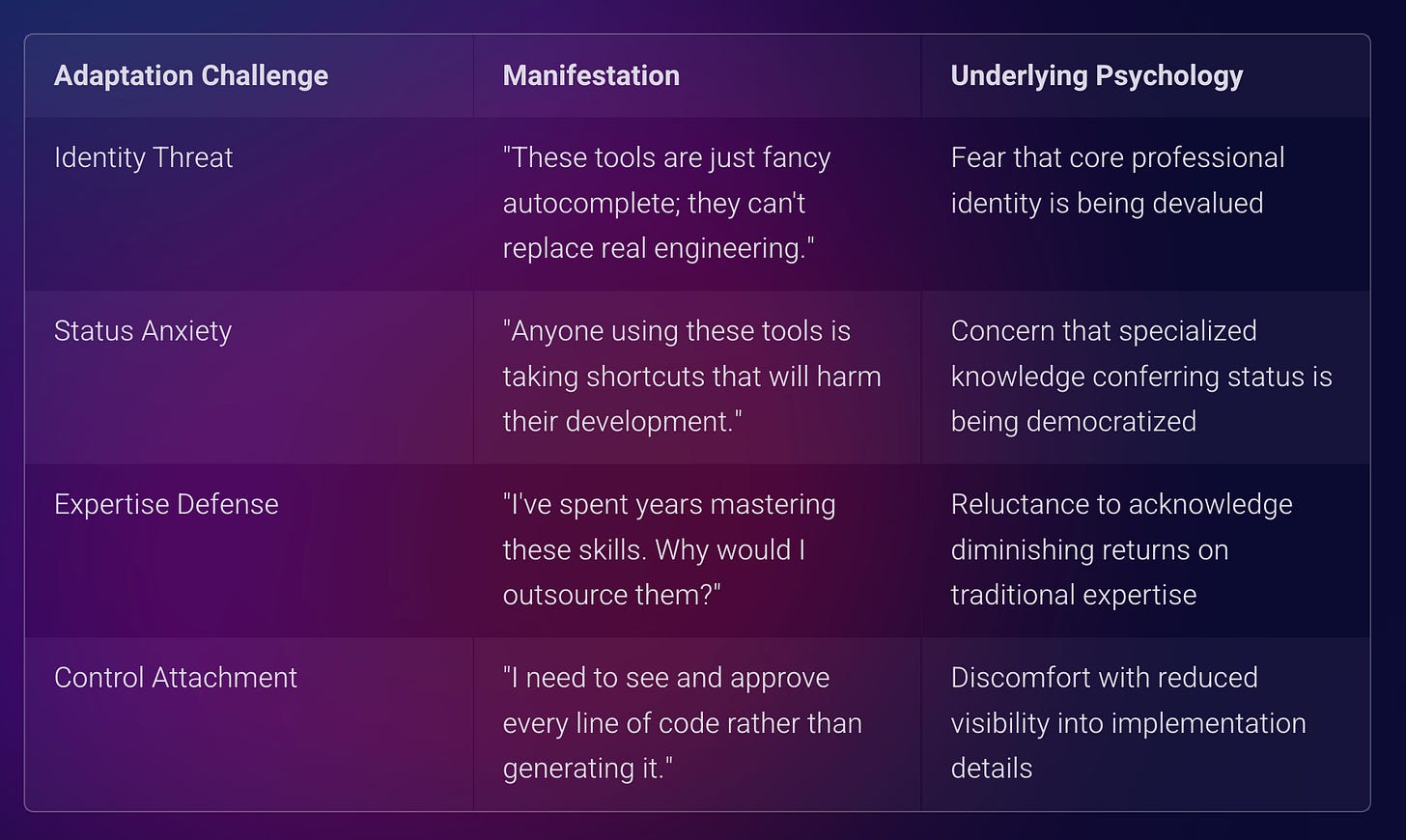Winning Battles But Losing the War
Are we winning coding battles while potentially losing the career war?
The Chess Master's Dilemma
In 1999, Garry Kasparov faced Veselin Topalov in what would become known as Kasparov’s Immortal chess game. On move 24, he sacrificed his rook with Rxd4, followed by another, seemingly catastrophic blunder. But these were calculated sacrifices forcing Topalov’s king into a losing position. By sacrificing tactical battles, Kasparov won the strategic war.
This chess strategy reminds me of how software engineers will respond to AI’s rapid evolution.
The Battles We're Still Fighting
For decades, our industry has measured engineering excellence through narrow criteria: coding velocity, debugging speed, syntax mastery. We’ve mythologized the “10x developer” as someone who produces code at superhuman rates. Some talented engineers optimize their vim configurations while missing the larger transformation.
This reminds me of professional photographers who focused on buying expensive DSLRs instead of recognizing the visual content creation landscape transformation. While they improved technical image quality, they missed the relevance shift as social platforms democratized photography and created new formats.
The War Worth Winning
1. Implementation vs. Architecture
Battle: Become the fastest coder in your organization.
War: Develop judgment to identify worthy problems.
As Tim O’Reilly notes, programming evolves, with old skills becoming obsolete and new ones key to success. Thriving engineers conceptualize entire systems, not just implement components.
2. Language Mastery vs. Systems Design
Battle: Memorizing programming language nuances.
War: Architecting systems where humans and AI interact optimally.
SVPG research on evolving product teams reveals that as technology absorbs engineers’ cognitive load, the key differentiator is designing software architectures that reflect the organization’s needs, product vision, and legacy systems.
3. Solo Performance vs. Collaborative Excellence
Battle: Debugging code independently for hours.
War: Building communication skills to collaborate across fluid team boundaries.
Research shows that “product teams are social constructs based on trust” and “real innovation is collaboration.” As AI handles routine coding, your value depends on effective collaboration with humans and AI.
4. Feature Focus vs. Strategic Vision
Battle: Implementing today’s requirements.
War: Anticipating tomorrow’s capabilities.
Junior engineers focus on implementing features, while strategic visionaries position themselves as “AI wranglers” balancing technical constraints and creative possibilities.
Real-World Evidence: The Adaptability Gap
In my conversations with developers, a pattern emerges: we struggle to adapt to AI coding assistants.
Senior engineers, accustomed to flawless code, experience cognitive dissonance when AI tools match or exceed their output. Meanwhile, developers who view tools as partners leverage them for problem framing and architectural decisions, delegating implementation details.
This isn’t just about tool adoption; it’s about identity. When exceptional skills become automatable, resistance is emotional, not technical.
Four Practical Steps to Win the War
1. Conduct a Skills Inventory
Map your skills onto a matrix:
2. Invest in "AI-Resistant" Capabilities
Certain capabilities remain difficult for AI to replicate:
Contextual understanding of organizational needs
Ethical reasoning about technology implications
Empathetic collaboration across diverse teams
Strategic vision that connects technical possibilities to business realities
Allocate at least 20% of your professional development time to these areas.
3. Practice Detachment from Implementation Details
The next time you solve a problem, try this exercise:
Write a detailed solution as you normally would
Then create a high-level description of the problem and solution
Use an AI tool to implement your high-level description
Compare the results and reflect on the differences
This builds the muscle of thinking at higher levels of abstraction.
4. Become Bilingual in Human and Machine Communication
The most valuable engineers increasingly serve as translators between:
Business stakeholders who articulate needs
AI systems that implement solutions
End users who experience the results
Practice explaining complex technical concepts to non-technical audiences, then translating their needs into effective AI prompts.
The One Thing That Matters Most
Remember, the war worth winning isn’t just about code production; it’s about developing uniquely human capabilities like judgment, wisdom, ethical reasoning, and creative vision. These are critical and probably more important now than ever.
The chess grandmaster knew when to sacrifice his rook. Which battles should you stop fighting to win the larger war?
What skills are you intentionally developing that will remain valuable regardless of how AI tools evolve? I'd love to hear your thoughts in the comments.
Sources
https://www.oreilly.com/radar/the-end-of-programming-as-we-know-it/
https://fs.blog/winning-battle-losing-war/#:~:text=Winning%20a%20battle%20but%20losing,corresponds%20to%20a%20wider%20disadvantage
If you found this valuable, check out my related articles:
From Vibes to Velocity: The Mental Models That Separate 10x from 100x Developers
The Silent Revolution in How We Build
From Vibes → Velocity
From Idea to MVP: Harnessing AI Tools to Bring Your Creativity to Life
Hey there, fellow creator! If you are thinking about diving into the world of codeless app development—it's an exciting frontier that's become incredibly accessible thanks to the AI revolution we're experiencing.
Idea to MVP with AI










